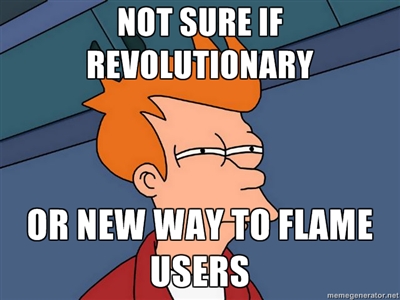I agree that there should be an alternate metric, but most of your general citizenship idea is not useful since this site is mainly a Q/A website. So, the primary purpose of a new metric should be to improve answer quality, and to promote wise allocation of time in answering questions. Since everyone's time is limited, spending it on less useful questions implies that you have given up the opportunity of answering questions that you could answer better. Therefore, when you design a new metric, it should try to match the right people to the right questions!
From this point of view, I think the following metric would be useful:
- Reputation: Quantifies how much work a person has put in this website
- Activeness: Quantifies how active they are in the last 30 days
- Responsiveness: Quantifies whether the OP takes care of their own question, using any form of response, including upvote, downvote (!), accept, or comment on the answers.
The last two metrics are very important motivation for me to give an answer here. Those two metric are not shown now, but I know that the OP (@Jeff) must give me responses and in a short time and therefore I am writing my answer here. There are already twenty answers here so most people will not read this answer. If the OP does not even read and give me any responses, there is no point for me write this answer, right? Even if I have good answer.
Let me elaborate why I think these metrics are helpful. The value of a question certainly is determined solely by the question itself. However, I will only spend a certain amount of time to read it, unless it is written by a reputable person (more likely to be valid), or a responsive person so that I can ask them to clarify.
As an answerer, if the question is very esoteric (and maybe useful) that only small group of people understand and have interest in it, I would consider to answer it only if the asker would give me a reply, since the OP might be the only audience that would read my answer! Another situation is old questions with answers. Even though the question itself are good and I know a better answer, I might answer it only if OP is active and will give me a reply. Otherwise, the question will pop up in the front page, the top rated answers get upvoted and the new answers at the bottom stay there without ever being seen, so pathetically.
As a learner, I would only read those answers that get a response, written by high rep user or with the clear answer in the first few lines.
Showing this data would allow us to decide how to spend our time answering questions. The removal of the accepted rate already prevents people from wasting time. Now you should give them information on how to allocate their time more wisely.
Some replies to other comments here:
What is the desired effect of it. Say we have a broader metric visible to others. What should I do, or how should my behaviour change if I stumble upon someone who is not acting responsibly? ..." – @Bart
You should move on to the next question. Just don't waste your time commenting if the poster is not active anymore. If the OP is not responsible and there is a long list of answers, please don't add new answer because no one will see it.
I don't mind having this, but it should not be displayed on questions. The quality of a question can be determined by reading it. Knowing more about the asker should not change your vote - @Manishearth
I agree that the quality of question is determined by itself, and extra information would not change my vote. But it would change the time I am willing to read it and answer it.
What is more useful to the longer term health of a community: a single ok question, or an engaged community member who assists and participates - @Jeff
Both, but not all people are willing to participate in both of them. Also, most information does not help any questions and answers, which you consider the first class citizen, at all. I would also suggest you to remove those blade counts because it is already correlated with reputation, the details blade are important though. I am in favor of the information being put on their user page.
Remark: The Activeness and Responsiveness involves information that is not in public so it is much more helpful the user page. You can put a high rating on accepted answer to motivate them to accept more answers.

 . For Deputy, you upgrade to
. For Deputy, you upgrade to  . For Marshal you get
. For Marshal you get  . You make the flag to end all flags and you get
. You make the flag to end all flags and you get  ,
, 
I would expect to see lots of "increase your rep" comments on posts. We don't see that.is false. Rep is a complex metric, so its effects on users will be complex as well. But to think that users won't change their behavior based on large numbers is naive (and directly counter to the whole basis for gamification). Users can and do change their voting, flagging, etc based on rep.